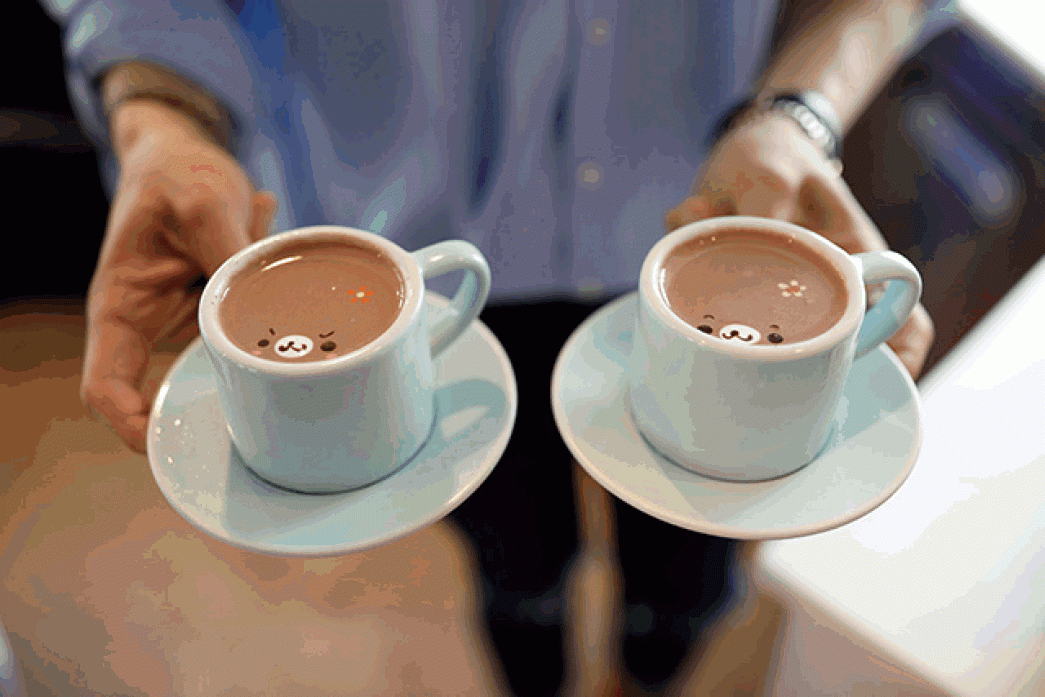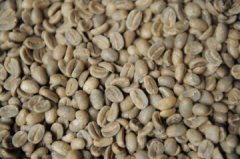Eat comfortably: don't drink more than one cup of coffee a day

For professional baristas, please follow the coffee workshop (Wechat official account cafe_style)
Coffee (pictured) and tea are very popular among Hong Kong people. Many people even drink more coffee or tea than water every day. However, excessive consumption of caffeine may lead to addiction, palpitations or rising blood pressure. The best daily caffeine intake for adults is 200 mg or less, that is, about one cup of coffee.
In recent years, the Centre for Food Safety has collected 80 types of coffee and milk tea from various restaurants in Hong Kong. the results show that coffee prepared by soaking in tea restaurants contains the most caffeine, while Hot Tea, HK Style is not comparable to each other. the caffeine content is higher than that of ordinary Chinese green tea or oolong tea. In fact, there are many other types of drinks on the market that contain caffeine. Some raw materials contain natural caffeine, such as chocolate drinks, while others are added caffeine, such as cola sodas and energy drinks.
Caffeine is generally considered safe, but every caffeine intake of more than 300 mg is a large dose, which may lead to acute poisoning, including headache, nausea, hyperactivity, anxiety, palpitation and insomnia. However, different people have different metabolic rates and different responses to caffeine.
In addition, long-term intake of a small amount of caffeine, such as 100 mg a day (equivalent to a lighter cup of coffee), can lead to dependence on caffeine. If you do not drink tea or coffee for a day, there will be withdrawal symptoms (Withdrawal Symptoms), such as headache, fatigue, fatigue, inability to concentrate on work, depression and so on. In addition, caffeine can also interfere with calcium absorption and increase the risk of osteoporosis.
If you have heart palpitations or rising blood pressure after drinking coffee or tea, you should stop drinking immediately. If you have the habit of drinking coffee or tea every day, it is best to keep the daily dose at or below 200 mg. Parents should avoid caffeinated drinks such as sodas and energy drinks for their children.
Important Notice :
前街咖啡 FrontStreet Coffee has moved to new addredd:
FrontStreet Coffee Address: 315,Donghua East Road,GuangZhou
Tel:020 38364473
- Prev

The press conference of Jiga time is held in Beijing. Does the coffee have a good time?
Exchange of professional baristas Please follow the Coffee Workshop (official Wechat account cafe_style) on August 31, the new pavilion of Beijing International Exhibition Center, sharing coffee brand Jiga time held a live press conference here, will create a coffee space. At present, the development of the sharing economy can be said to be choppy, and the shared coffee machine itself has a shared element, how to better, faster and more convenient
- Next

Blue Bottle public secret skills teach you to make fine cold brewed coffee at home.
Professional barista communication Please follow the coffee workshop (Wechat official account cafe_style) sounds very old-fashioned, but this summer in Taiwan is really hot! There are many ways to fight against the hot summer. In the coffee industry, the best solution, of course, is Cold Brew cold coffee, which is so red and purple in recent years. With the popularity of cold-soaked coffee, you can drink it in all the coffee shops in the streets recently.
Related
- Can lightly roasted coffee beans be used to extract espresso? How finely should you grind high-quality coffee beans to make Italian latte?
- What is the difference between the world's top rose summer coffee and Yejia Shefi? What are the flavor characteristics of Yega Shefi coffee and Panama rose summer?
- The ceremony is full! Starbucks starts to cut the ribbon at a complimentary coffee station?!
- A whole Michelin meal?! Lucky launches the new "Small Butter Apple Crispy Latte"
- Three tips for adjusting espresso on rainy days! Quickly find the right water temperature, powder, and grinding ratio for espresso!
- How much hot water does it take to brew hanging ear coffee? How does it taste best? Can hot water from the water dispenser be used to make ear drip coffee?
- What grade does Jamaica Blue Mountain No. 1 coffee belong to and how to drink it better? What is the highest grade of Blue Mountain coffee for coffee aristocrats?
- What are the flavor characteristics of the world-famous coffee Blue Mountain No. 1 Golden Mantelin? What are the characteristics of deep-roasted bitter coffee?
- Can I make coffee a second time in an Italian hand-brewed mocha pot? Why can't coffee be brewed several times like tea leaves?
- Hand-brewed coffee flows with a knife and a tornado. How to brew it? What is the proportion of grinding water and water temperature divided into?

